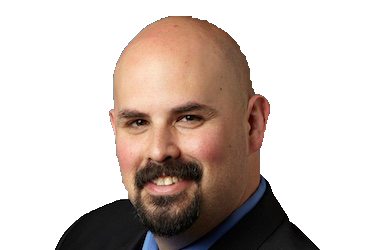Many students and parents think that attending a prestigious college is a golden ticket to success. While students from elite schools may have an easier time finding their first job, research shows their advantage doesn’t last.
“What the data tells us is the first year out of school, the biggest brands have a distinct advantage, monetarily,” said Rob Schwartz, an educational consultant and UCLA college counseling certificate instructor. “By the time you make it to 10 years out, there’s little to no difference.”
Most of the confusion stems from the fact that graduates of elite schools have higher average earnings; however, those students are the best and brightest handpicked from hundreds of thousands of the nation’s top applicants.
To discover whether students’ success stemmed from the college they attended or their own characteristics, Stacey Berg Dale, a researcher and Princeton graduate, and Alan B. Krueger, a Princeton professor and economist, conducted a study in 2002. After comparing students who applied to and were accepted by similar colleges, but attended different ones, they found that there was almost no correlation between the college they attended and their expected future income.

What a top school should be is somewhere where you’re going to succeed and do well, and it doesn’t have to a name-brand school.
— Nina Rasor, college and career assistant
Their follow-up study in 2012 went into even more depth as they attempted to measure each student’s quality. In addition to standard variables like GPA and SAT scores, they considered “unobserved ability” and ambition by measuring the average SAT scores of the colleges each student applied to.
Sure enough, the results mimicked their previous conclusion. Attending a selective college does not improve future earnings at all.
However, many students who think top schools are better do not believe so without reason. Among their reasoning is the reputation, or “brand,” of schools, according to Schwartz.
“It’s some combination of peer pressure, parental pressure, use of orienting guides, and it’s what they know,” Schwartz said.
Senior Hedy Mah agrees that peer and parental pressure can make students feel obligated to attend top schools.
“I think for me personally [it matters a lot] because the environment that I’ve grown up in is geared towards getting into a top-tier college or a mid-tier college,” Mah said.
According to Schwartz, another leading cause is college ranking systems, such as U.S. News’, which compares several variables to rank schools from best to worst.
“I don’t believe in ranking systems. I think they are put together haphazardly and do not necessarily take into account the goals and needs of the applicant or their family,” Schwartz said.
Even as far as earning money is concerned, he thinks the ranking systems are irrelevant since they are strongly based on admissions statistics, which are not directly related to students’ actual education.
“For the students who say, ‘Look, I’m in it for one reason. It’s to make as much dough as possible,’ if that’s your thing, I’m not gonna argue with you. But, I would tell you to look at your return on investment as opposed to just the brand,” Schwartz said.
The difference between rankings and return on investment can be huge. According to PayScale’s return on investment rankings, the Colorado School of Mines has the fourth-highest return of non-military colleges, but U.S. News’ ranking puts it in 84th place.
Despite his dislike of the ranking system, Schwartz still thinks that top colleges have some advantages.
“One of the biggest advantages is that you have some of the best and brightest students as your competition, and they’re your peer group,” Schwartz said. “Another advantage is a lot of people who are in charge of hiring for companies are still aware of the brand, right, wrong, or otherwise.”

That, I think, is where most students and parents make the biggest mistake is they buy the brand, but they don’t buy the fit.
— Educational Consultant Rob Schwartz
The one exception to the study’s conclusion was for students from minority or lower-class backgrounds. The study showed that while the college attended doesn’t affect earnings for white students, it makes almost a 20% difference for black, Latino, and lower-income students.
Despite this, and since the data may be outdated, many college advisors try to avoid basing decisions on ethnicity.
“My sincere hope is that, by that point in time, we’re all adults, and hirers are not going to look at you as a minority student, but as a potential working professional and judge you based on your skill set and experience alone,” Schwartz said.
Many students have different ideas of why top colleges are better, such as the resources available at different schools.
“I think it matters in the way that high ranking colleges sometimes have better resources than some of the low ranking ones,” Mah said. “But then again, I think a lot of mid-tier colleges do have some resources.”
Regardless of whether or not elite universities provide better education, many students put countless hours of work into their applications in addition to their regular schedule.
“I think college applications are very stressful, especially when combined with a senior schedule and keeping grades up,” said Nina Rasor, Carlmont’s college and career assistant.
As a result, many students have to sacrifice other things in their daily schedule and end up with little free time.
“This year, I had to cut down on a lot of my extracurricular activities because of college apps. Last year, I would sometimes go on walks in the evenings, or maybe I would swim on the weekends, but this year I have not been doing that at all,” Mah said.
Ultimately, while top-ranked colleges may not be the golden ticket to success that many expect, they still have some advantages in networking and atmosphere, and attending them will benefit most students, according to Schwartz.
“If you’re going to get a bachelor’s degree, is it better to go to Harvard or Cal State? Most of the time, the answer is going to be Harvard,” Schwartz said. “But, if Harvard doesn’t have what you want to study, and a CSU does, or if you simply need to have the certification (like for teaching), then why spend the money on Harvard when you can get the same thing for a fraction of the cost at a CSU school?”




